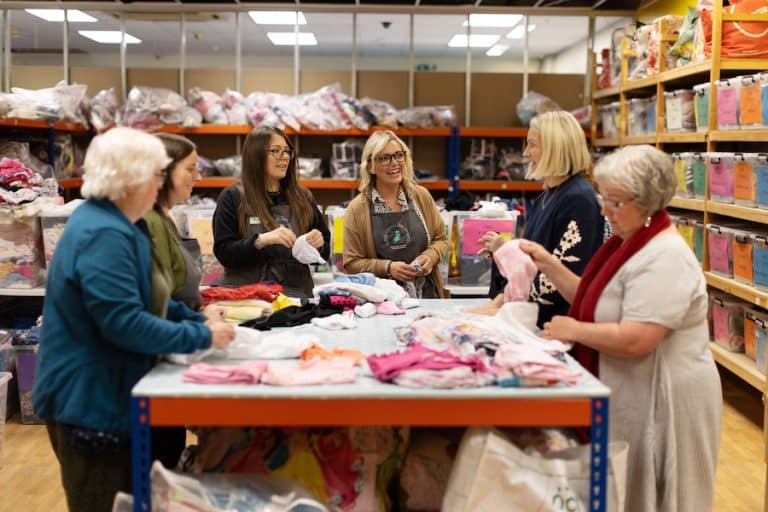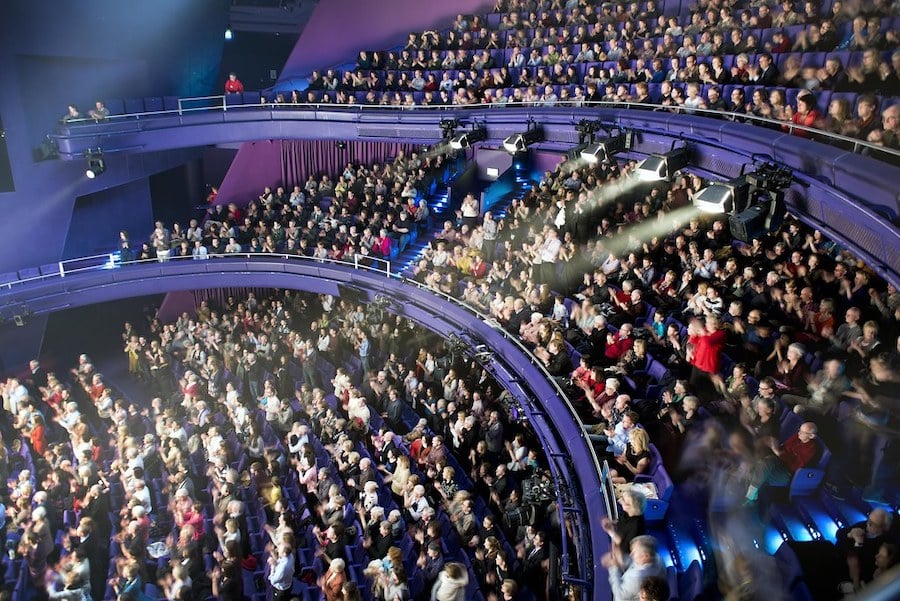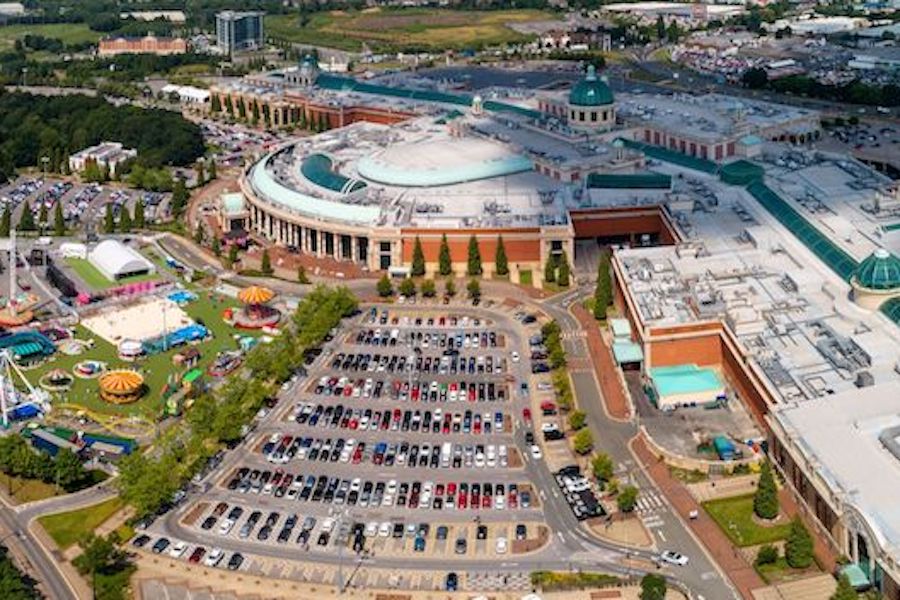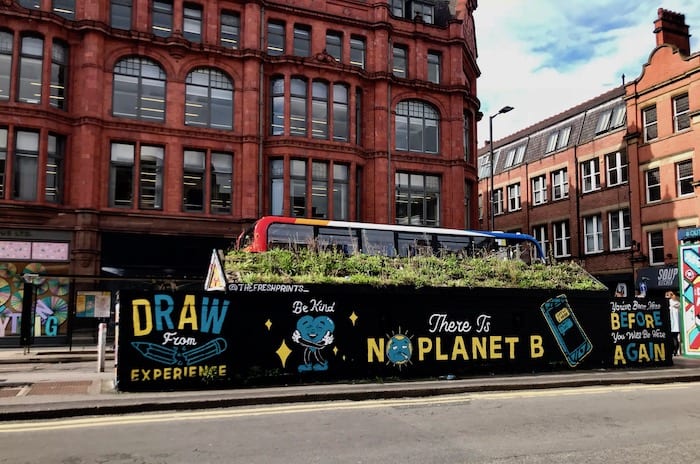Learn the art of roasting better coffee with 200 Degrees
- Written by Hannah Vazquez Jones
- Last updated 3 years ago
- Food & Drink, Sponsored
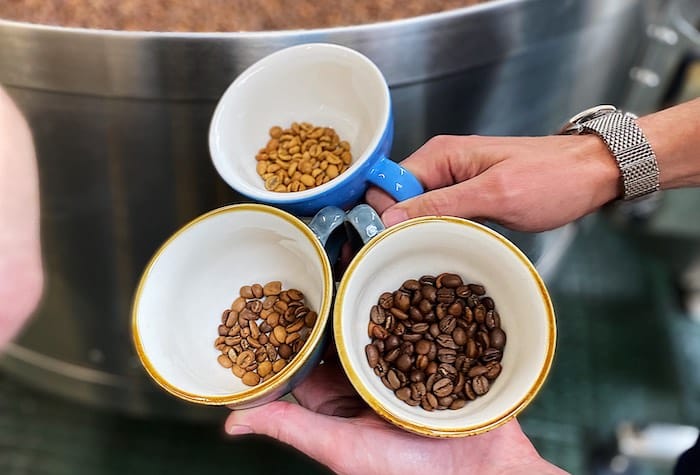
Ever wondered how your coffee can sometimes have a taste of chocolate, maybe even a hint of pomegranate or a note of toffee?
It feels a little bit like choosing your favourite wine – and that’s because the roasting process is what produces the characteristic flavour of coffee by causing the raw green coffee beans to change in taste.
The I Love MCR team met up with 200 Degrees Coffee head roaster, Mike Steele at the 200 Degrees Roast House which has been their home since 2012. It’s the base for everything they do, and the team has grown impressively in this time.
Mike really knows his stuff on coffee and he taught us the art of their roasting, which they have truly got to the peak of perfection.
How is coffee roasted?
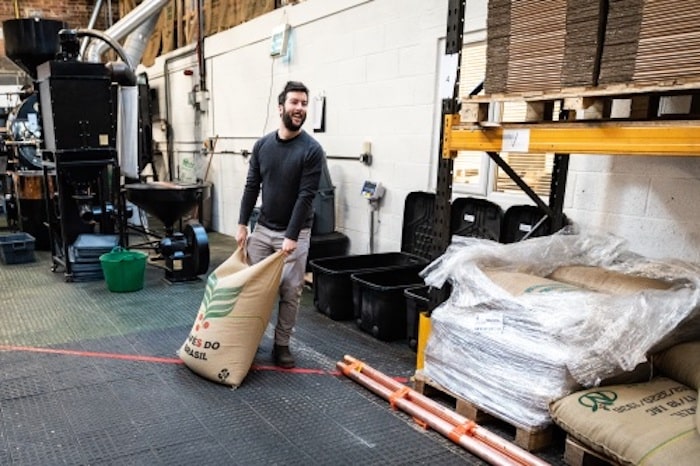
You can tell the passion Mike has for coffee, especially with it being a natural product which means it’s always changing, and the science and care that goes into the 200 Degrees roast process creates those super tasty blends.
200 Degrees is built on helping everyone drink better coffee and whilst their coffee shops, including a new Manchester shop and coffee school, serve over half a million cups of coffee every year, even more of their hand-roasted beans are served in many restaurants, cafes, coffee shops, hotels and bars. Therefore, they need to roast a huge quantity of beans.
Bear in mind, 200 Degrees was created because two bar owners couldn’t find the quality level of coffee supply they wanted, so they began to roast their own. So they know what they’re talking about in that department.
Central to everything happening at the roast house is their 70kg Loring Peregrine roaster, which is a true beast of a machine.
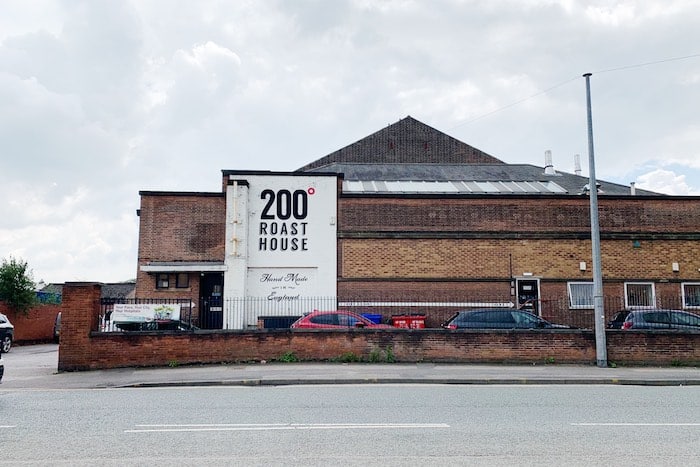
This is where the beans are loaded, going into a suction line which brings them into the drum where its heated through the most efficient process of any coffee roaster – as Mike said, “it’s a bit like a huge bunsen burner.”
We learnt that there are three main stages in roasting: drying stage, browning stage and the development stage.
Naturally, your senses need to be tuned into the roast and there were some amazing scents wafting through the roast house. This is what 200 Degrees have got down to a fine art – their head roaster really learnt to roast coffee without the aid of sensors.
Depending on the type of roast, some may take a little longer to extract more sweetness and body, a bit like the signature espresso blend, Brazillian Love Affair. A fruity Brazillian combined with Colombian Arabica and Vietnamese Robusta, it’s slow roasted medium/dark giving a great crema and body with a real bite.
Where does coffee’s flavour come from?
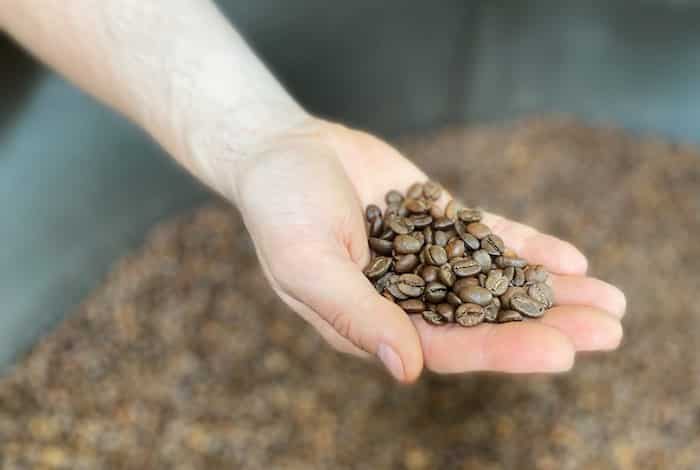
When the beans are roasted a little more and more time is given to it, this pushes the sugar development which is how you can achieve that extra flavour. Something the head roaster puts a lot of effort into is achieving the perfect blend with a longer roast, something you really do miss with chain coffee stores.
Everyday is a school day for ILM, so we then learnt that the coffee beans start to expand as they get hot, reaching a yellowing effect.
The beans take on more energy as heat as they roast – this is a crucial time as the coffee starts to develop all the sugars and oils (all the bits we love…).
When the coffee is browning, the natural sugars are caramelising, which starts to produce a glorious smell. But as we learnt, the beans are still quite a long way from the finished product at this point.
The coffee beans expand further with the heat and pressure, you can start to see the change in colour and the machine is doing all the work on roasting this to its optimum colour.
Once it’s at its level of development, the beans are then released into a cooling tray, in what we can only describe as ‘a sea of coffee’ when it hits its cooling process.
For keen coffee lovers, it’s a dream to see.
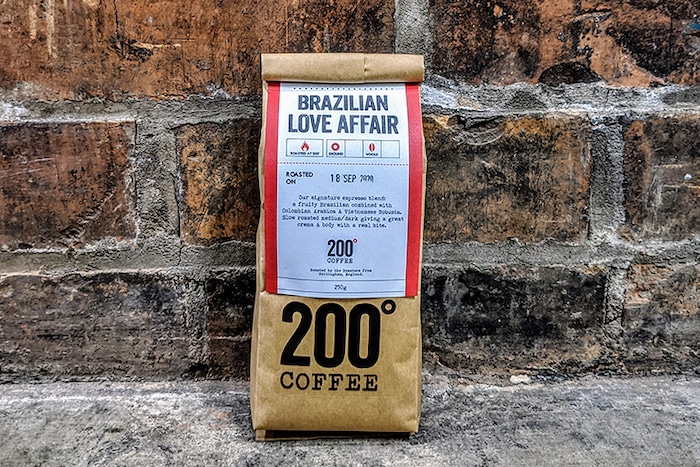
Whilst the coffee is cooling, head roaster Mike explained to us that any defects can be picked out from the batch.
When the beans were finished, they went into what’s called a ‘de-stoner’. This then concluded in perfect coffee beans ready to be weighed and packaged.
Honestly, words cannot espresso how impressed we were….
Enjoy 200 Degrees at work
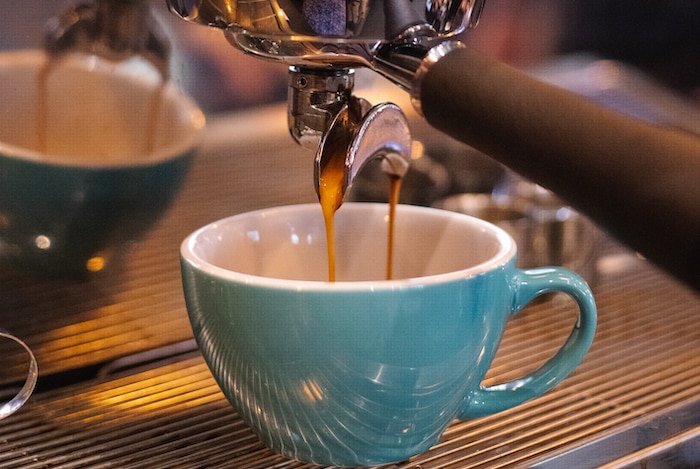
We know that you can’t always get out for a coffee with our busy lifestyles and working from home more, but you can now enjoy 200 Degrees at work, banning the tin of instant and banishing dodgy vending machines forever.
200 Degrees can also help with fresh milk and whole bean solutions to make the return to the office much more bearable.
You can buy a one-off bag of fresh 200 Degrees coffee at their online shop, or alternatively, you can even do a home delivery coffee subscription service – perfect for those who need a daily coffee, like ourselves.
The super helpful team will even give you advice on brewing your beans and the methods needed for each roast.
The 200 Degrees Roast House on Meadow Lane in Nottingham always welcomes visitors for training days if you want to up your knowledge on the detailed art of roasting coffee – and make sure you check out their new Manchester coffee shop on Moseley Street, too.
- This article was last updated 3 years ago.
- It was first published on 15 July 2021 and is subject to be updated from time to time. Please refresh or return to see the latest version.
Did we miss something? Let us know: [email protected]
Want to be the first to receive all the latest news stories, what’s on and events from the heart of Manchester? Sign up here.
Manchester is a successful city, but many people suffer. I Love Manchester helps raise awareness and funds to help improve the lives and prospects of people across Greater Manchester – and we can’t do it without your help. So please support us with what you can so we can continue to spread the love. Thank you in advance!
An email you’ll love. Subscribe to our newsletter to get the latest news stories delivered direct to your inbox.
Got a story worth sharing?
What’s the story? We are all ears when it comes to positive news and inspiring stories. You can send story ideas to [email protected]
While we can’t guarantee to publish everything, we will always consider any enquiry or idea that promotes:
- Independent new openings
- Human interest
- Not-for-profit organisations
- Community Interest Companies (CiCs) and projects
- Charities and charitable initiatives
- Affordability and offers saving people over 20%
For anything else, don’t hesitate to get in touch with us about advertorials (from £350+VAT) and advertising opportunities: [email protected]
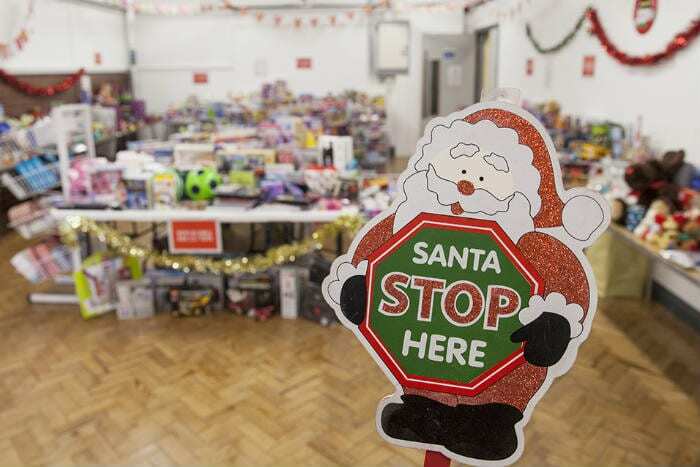
The very special toy shop where parents don’t pay a penny is open – and busier than ever
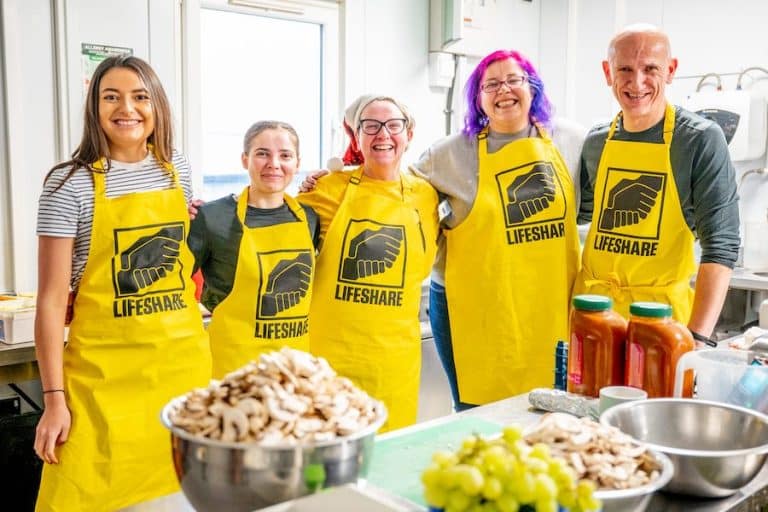
Manchester’s oldest homelessness charity celebrates 40 years of supporting the needy
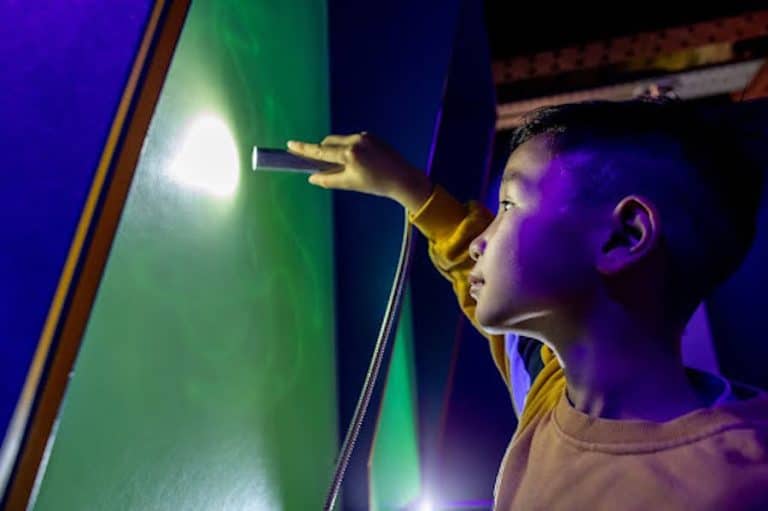
Games, science and history collide at Manchester’s Science and Industry Museum this winter

Best bars and pubs to watch the football and live sport in Manchester
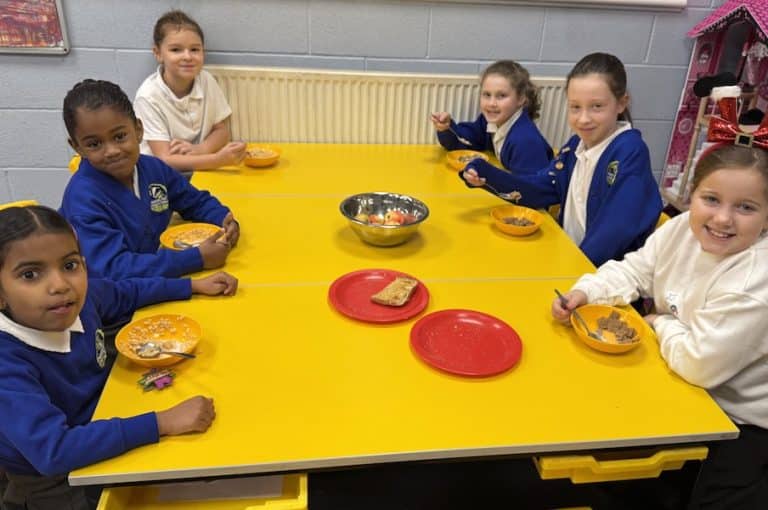
How Baguley Hall Primary School is nourishing minds with a morning Magic Breakfast
